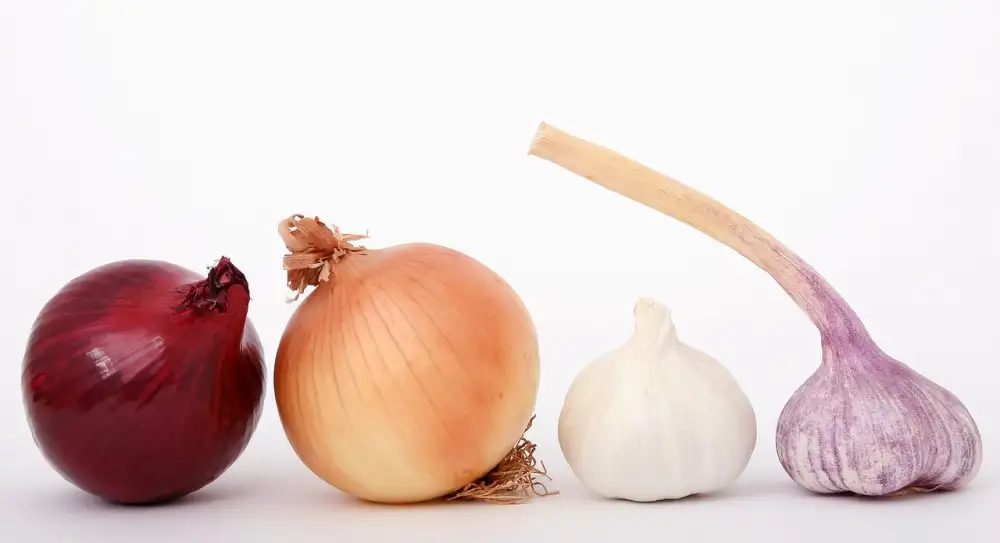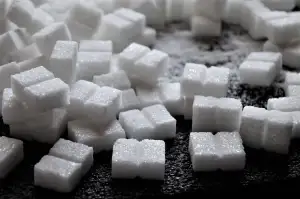Unlocking the Secrets: How Long Does Garlic Last? Discover the Shelf Life of this Flavorful Ingredient

Garlic, with its pungent aroma and distinct flavor, is a staple in many kitchens around the world. Whether you're using it to add depth to your favorite dishes or harnessing its medicinal properties, understanding the shelf life of garlic is essential for both culinary enthusiasts and health-conscious individuals.
From its humble origins in Central Asia to its widespread cultivation today, garlic has been prized for centuries for its unique taste and numerous health benefits. But just how long does this flavorful ingredient last? Join us as we unlock the secrets behind garlic's longevity and discover how to make the most of this versatile ingredient in your kitchen.
Factors Affecting the Longevity of Garlic
Several factors can influence the shelf life of garlic, determining how long it will stay fresh and flavorful. These factors include the quality of the garlic at the time of purchase, storage conditions, and whether it is stored as a whole bulb or as individual cloves.
The quality of garlic plays a significant role in its longevity. Fresh, firm bulbs with tight skin are more likely to last longer than those that are already soft or have damaged cloves. When selecting garlic, choose bulbs that feel heavy for their size and have no signs of mold or sprouting.
Storage conditions also impact how long garlic will stay fresh. Garlic should be kept in a cool, dry place away from direct sunlight and moisture. Exposure to heat and humidity can cause garlic to spoil more quickly. Ideally, store garlic in a well-ventilated container or mesh bag to allow air circulation.
The way garlic is stored can also affect its lifespan. Keeping the bulbs intact until ready for use helps retain their freshness for a longer period. Once a bulb is broken apart into individual cloves, they become more susceptible to spoiling. However, if you prefer convenience, you can peel and store peeled cloves in an airtight container in the refrigerator.
By understanding these factors and implementing proper storage techniques, you can extend the shelf life of your garlic and ensure it remains flavorful for as long as possible.
Proper Storage Techniques for Extending Garlic's Lifespan
Proper storage techniques play a crucial role in extending the lifespan of garlic. Here are some tips to help you keep your garlic fresh for longer:
1. Store in a cool, dry place: Garlic should be stored in a cool and dry environment, away from direct sunlight. Avoid storing it near heat sources like the stove or oven, as this can cause premature sprouting and spoilage.
2. Use breathable containers: Opt for containers that allow air circulation, such as mesh bags or wire baskets. These containers prevent moisture buildup and help maintain the quality of the garlic.
3. Avoid refrigeration: While refrigeration may seem like a logical choice, it can actually accelerate sprouting and alter the flavor of garlic. It is best to store garlic at room temperature for optimal freshness.
4. Keep away from moisture: Moisture can cause garlic to become moldy or rot quickly. Ensure that your storage area is free from excess humidity and avoid storing garlic near sinks or other areas prone to moisture.
By following these storage techniques, you can extend the lifespan of your garlic and enjoy its flavorful taste for longer periods.
Signs of Spoiled Garlic: How to Identify if Garlic Has Gone Bad
Garlic is known for its pungent aroma and distinct flavor, but like any other ingredient, it can spoil over time. Here are some signs to look out for to determine if your garlic has gone bad:
1. Discoloration: Fresh garlic should have a white or off-white color. If you notice any green shoots or blue-green patches on the cloves, it's a clear indication that the garlic has started to spoil.
2. Soft or Moldy Texture: Healthy garlic cloves should feel firm and dry to the touch. If they become soft or squishy, it's a sign that moisture has gotten into the bulb, causing it to deteriorate. Additionally, if you spot any mold growth on the cloves or bulb, discard them immediately.
3. Unpleasant Odor: While garlic naturally has a strong smell, spoiled garlic will emit an unpleasant odor that is distinctly different from its usual aroma. If your garlic smells rotten or sour, it's best to throw it away.
4. Bitter Taste: Fresh garlic has a slightly sweet and tangy taste. However, if you bite into a clove and find it bitter or overly acidic, it means that the garlic is past its prime and should not be consumed.
Remember that these signs may vary depending on the degree of spoilage and storage conditions. It's always better to err on the side of caution and discard any questionable garlic to avoid potential foodborne illnesses.
By being vigilant and knowing how to identify spoiled garlic, you can ensure that you only use fresh and flavorful cloves in your culinary creations.
Frequently Asked Questions about Garlic's Shelf Life
1. How long does garlic last?
Garlic can last for several weeks to a few months, depending on the storage conditions. Properly stored fresh garlic bulbs can stay fresh for up to 3-5 months.
2. Can I store garlic in the refrigerator?
Yes, you can store garlic in the refrigerator, but it's not recommended for long-term storage. The cold temperature and moisture can cause the cloves to sprout or become rubbery.
3. Should I store garlic in the pantry?
Storing garlic in a cool, dark, and dry place like a pantry is ideal. It helps maintain its flavor and freshness for a longer period.
4. Can I freeze garlic?
Yes, freezing garlic is an excellent way to extend its shelf life. You can freeze whole cloves or chop them before freezing. However, note that frozen garlic may lose some of its texture when thawed.
5. What are the signs of spoiled garlic?
Spoiled garlic will have brown spots, mold growth, or a strong unpleasant odor. If you notice any of these signs, it's best to discard it.
6. Can I still use sprouted garlic?
While sprouted garlic is safe to eat, it may have a bitter taste and slightly different texture than fresh cloves. Remove the green sprouts before using if you prefer a milder flavor.
Remember that proper storage techniques play a crucial role in maintaining the freshness and quality of your garlic for as long as possible.
In conclusion, understanding the shelf life of garlic is essential for maximizing its flavor and freshness in your culinary creations. By considering factors such as storage conditions, variety, and preparation methods, you can extend the lifespan of this flavorful ingredient.
Properly storing garlic in a cool, dry place away from moisture and sunlight will help prevent sprouting and spoilage. Additionally, avoiding refrigeration and keeping garlic whole until ready to use can help maintain its potency.
Remember to regularly check for signs of spoiled garlic such as mold, discoloration, or a strong odor. If any of these indicators are present, it's best to discard the garlic to avoid any potential health risks.
By following these guidelines and utilizing your garlic while it's at its freshest, you can unlock its full potential in your dishes. So go ahead, experiment with different recipes and savor the rich flavors that fresh garlic brings to your meals.
Published: 28. 11. 2023
Category: Food



